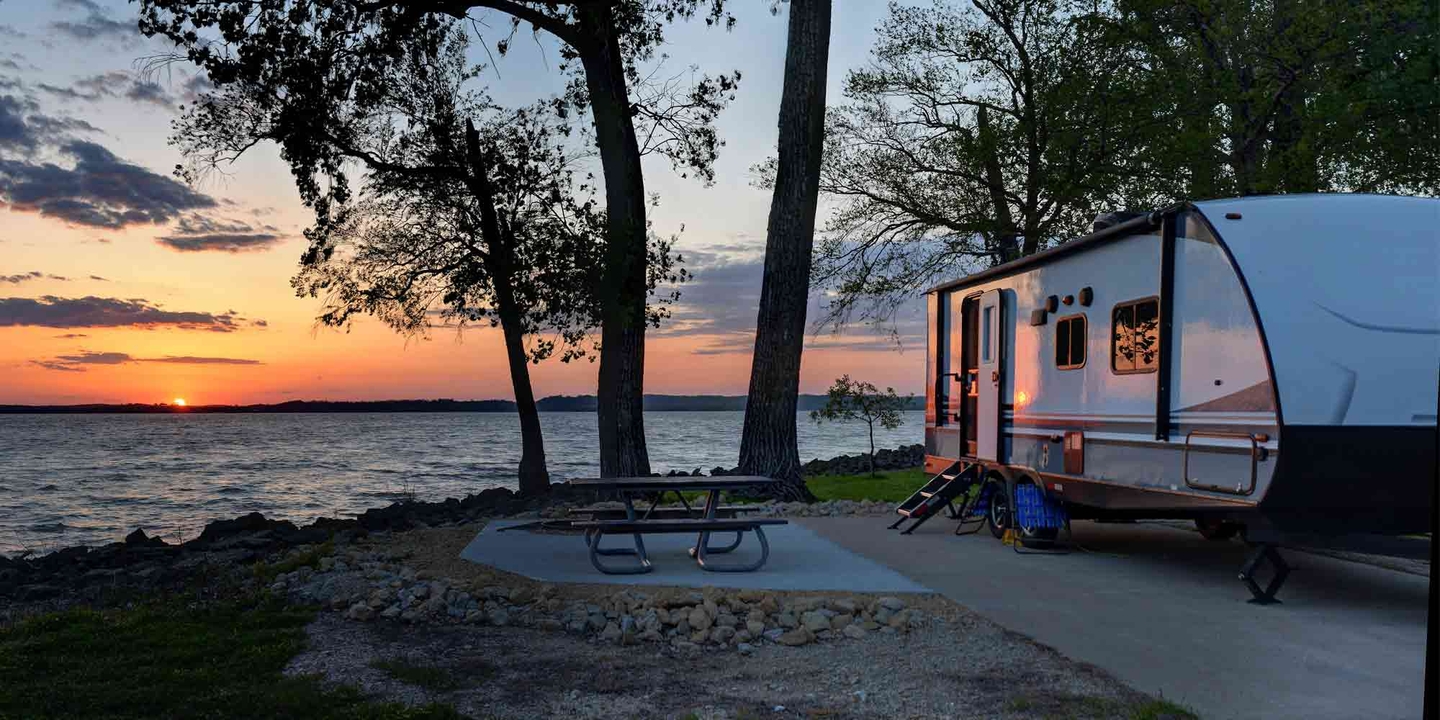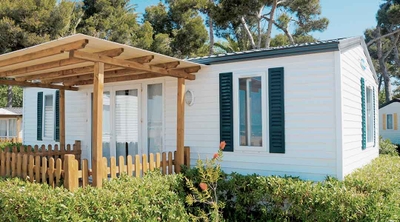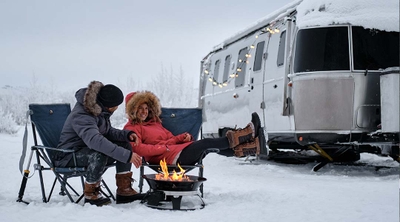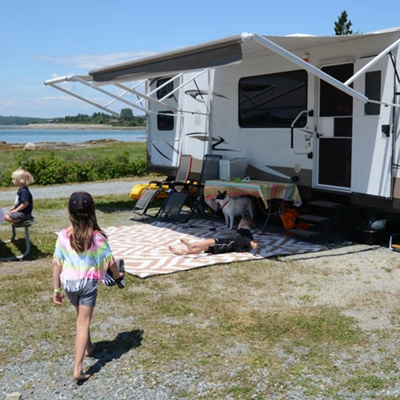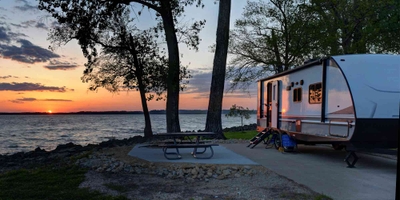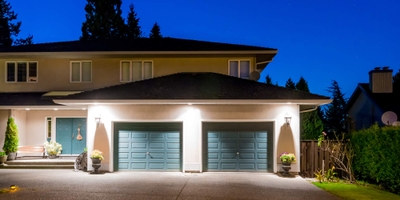How to protect your RV's systems while camping
4 min read
Water and electric power are your two greatest amenities when it comes to RVing at a campsite. Both systems are connected to just about every RV convenience: cooking, cleaning, entertainment, lighting, most appliances, and temperature control. While generally equipped with the ability to boondock, sourcing all amenity needs independently, RVs perform at their best when hooked up to campground water and electricity.
The potential for problems arises when the water or electricity from the campground is insufficient, compromised, or unregulated. These situations may cause significant damage to your RV’s systems, but you aren’t defenseless if you’re properly prepared.
Key protections for your RV’s systems
Prepare for campground issues like electrical surges, poor water quality, bad water pressure, or non-functioning electricity and water RV hookups with these components.
Water pressure regulators
When you connect the campground’s water to your RV’s plumbing system, you’re at the mercy of the water’s PSI, meaning there’s nothing to regulate the pressure coming from the source. Most public water hookups are designed to provide water for buildings, not RVs, so their water pressure is much higher than an RV can handle.
Consider that an RV’s plumbing is made of plastic whereas a building’s is typically made from metal—excessive water pressure can also damage seals and fittings, leading to leaks that can cause structural damage. The solution is small, simple, and affordable: a water pressure regulator. This small brass valve connects your RV’s plumbing with a water source and regulates the water pressure to protect your system.
You can choose between an adjustable or non-adjustable regulator. An adjustable regulator will come with a gauge that indicates the pressure level, and you can adjust the level depending on your needs. Regulators can go bad over time. If you have low pressure and believe your regulator might be the culprit, don’t disconnect and expose your system to unregulated water pressure. Instead, fill your freshwater tank and try to get by with your onboard water pump until you can cheaply and easily replace your regulator.
Water filters
Water quality will change from campground to campground or wherever you source water to refill your freshwater tank. Water filters provide clean drinking water free of contaminants, but they also help maintain your system and prevent build-ups of sediment that could form over time in your RV’s plumbing system. Two main types of water filters exist, exterior and interior and both serve important roles:
- Exterior filter: Connects between your hookup spigot and your RV’s fresh water tank, preventing sediment and odors.
- Interior filter: Connects between your freshwater tank and your faucet, removing particulates, contaminants, and microorganisms from your drinking water.
In tandem, these filters can improve the taste and quality of your drinking water. Often, public water will include superfluous amounts of chlorine, and these filters will return these to a more normalized level before being used in your RV.
Electrical surge protectors
Shore power is what you hook your RV to at a campground to power your RV, appliances, and amenities without a generator. But you can’t always trust shore power. You could be at risk from faulty wiring, electrical surges, or low voltage–all of which can permanently damage your system and fry your electronics.
For example, a lightning strike affecting your campground’s energy grid would pass directly into your RV, potentially harming your system. Surge protectors help alleviate much of that risk. Like a water pressure regulator, an electrical surge protector is the gatekeeper to the electronic systems on your rig: no excessive amounts of electricity can get past the surge protector that would otherwise damage your appliances or electrical setup. A surge protector hooks up between the electrical outlet for the shore power and your RV’s electrical cable. It’s a simple setup and doesn’t require much additional time or effort.
There are two types of electrical surge protectors: standard surge protectors and electrical management systems. An electrical management system does a little more work than a standard surge protector. It can protect against high voltage, low voltage, reverse polarity, open neutral, open ground, and many other issues. Invest in an offering with a locking system, so you won’t worry about theft or anyone influencing your electrical power.
Water pump and generator maintenance
Your RV is built to sustain itself independently–at least for short bouts. If your electrical or water hookups aren’t functioning as they should, your water pump and generator are there to shoulder the burden. Your water pump and generator provide electricity and water pressure to your systems if your hookups can’t. Maintain your water pump with regular care, which means inspecting the system a few times a year and looking for any noticeable leaks or breaks in the hardware. Specifically, look at the seals to see any wear or damage.
Your generator maintenance is more like engine maintenance: you’ll need to monitor oil and fluid levels and cleanliness, and you’ll need to periodically change the filter, inspect for damage or leaks, and monitor hoses on a somewhat regular basis. By doing so, you ensure your generator is in excellent working condition should it need to power your most important amenities and RV functions.
Water and electric accessories
Here are some easy accessory options that will add another layer of protection to your rig.
- Sewer hose support: Not only do these keep your hose elevated to improve the gravitational force during emptying, but you risk guests tripping and damaging it when it’s more in the forefront of their pathway.
- Potable drinking water hose: Use a hose designed for water consumption, free of toxic chemicals, to withstand a lot of movement and handling at the campground.
- Dirty water RV hose: Invest in a durable water hose alternate that you can use to clean out your sewer hose after dumping. You can keep this with your other dumping accessories and supplies to not confuse it with your clean water hose.
By taking these preventative steps, you ensure your RV performs at its best regardless of the environment. You won’t always need these protections, but you’ll be glad you made the investment when the time comes.
